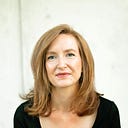

Discover more from Write More, Be Less Careful
"Becoming a caregiver breaks open your brain in brand new ways."
bestselling author and podcaster Jo Piazza on becoming "painfully efficient" in her creative life after having kids
Hello there! This is a good creatures interview, a series that explores the intersection of caregiving and creative practice. I’m so excited to showcase people doing lots of kinds of caregiving—people caring for kids or pets or other family members and/or caring for space through gardening or community work or activism—and lots of kinds of creative work.
If you know (or are!) a good creature whose work we should feature, send me an email—you can just reply to this newsletter.
Today’s interview is with Jo Piazza, author of The Sicilian Inheritance, We Are Not Like Them, You Were Always Mine, Charlotte Walsh Likes to Win, The Knockoff, and How to Be Married. I met Jo after she led a really fun conversation with Minna Dubin for Minna’s Philadelphia launch of Mom Rage. (And let me tell you, the moms in that book signing line! Some of the smartest, funniest women I’ve met in a long time!) In addition to being a wildly prolific novelist and podcaster, Jo writes a great newsletter, Over the Influence, about writing, parenting, travel, social media, and more. (She’s currently serializing a #TRADWIFE Thriller, if that’s your jam.)
Below we talk about how writing and parenting maybe makes you into a cyborg and why she refuses to give up travel.
Who do you care for?
Three kids, 6, 4 and 1. My husband. My mom lives about 45 minutes away and her health is getting worse.
What kind of creative work do you do?
I write books (my latest is The Sicilian Inheritance) and make three podcasts, Under the Influence, Too Much Money, and Committed.
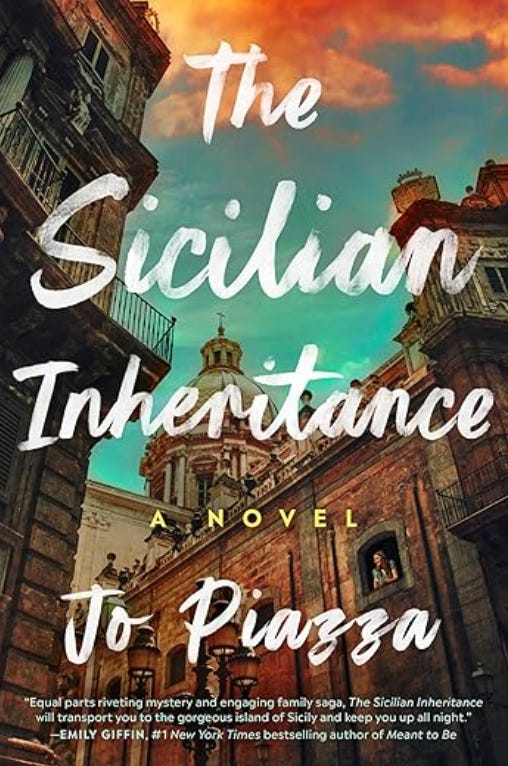
What’s changed in your creative life since becoming a caregiver?
I’m just painfully efficient now. Give me an hour and I will get whatever I need to get done done. I don’t have time to fuck around or daydream and maybe that is bad and I am a cyborg now or maybe that is just how we evolve when we have no choice but to multi-task.
What are some ways care-giving fosters creativity and vice versa?
I do think that becoming a mother lets you see things in a whole new way. The things that have become mundane in your 40 years on the planet are somehow now new and fascinating through your kids’ ideas.
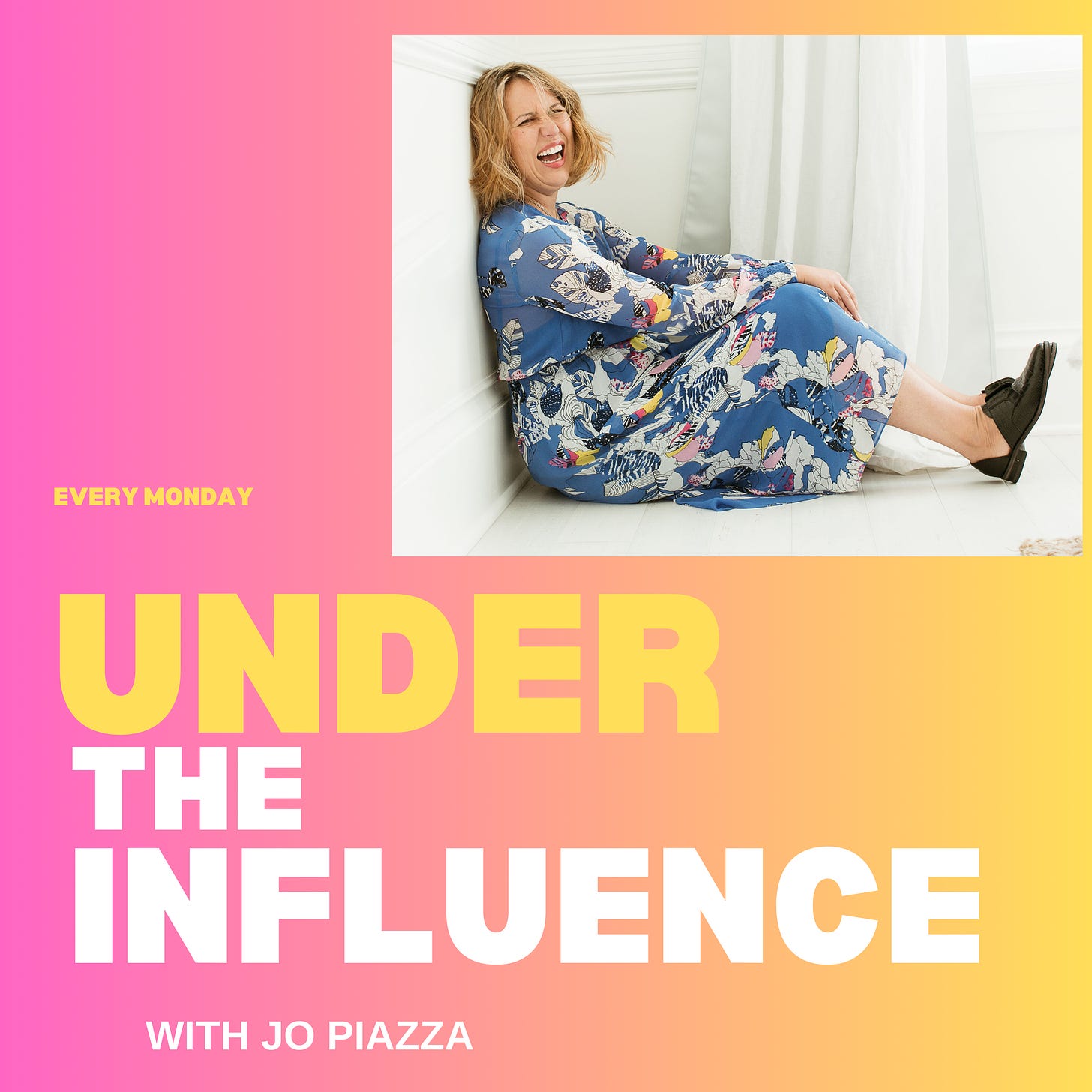
What is difficult about being creative and a caregiver?
There isn’t a ton of time for reflection. I do think that a lot of creativity happens during periods of rest and reflection and that is hard to come by these days.
Becoming a caregiver breaks open your brain in brand new ways. It will be so fucking hard, but you will also learn you are so much more capable of doing many, many things at once than you ever imagined.
What have you given up or done less of or outsourced to make space for your creative work?
I have nearly full-time childcare. We have help from 9-3:30 every single day. I have folks who come help clean the house every two weeks. I refuse to give up travel, both solo and with my family, despite the fact that it is so much harder logistically and more expensive. For me travel always offers inspiration and a reboot of my creativity so keeping it in our lives is non-negotiable.
What do you do to help activate the switch (if it is a switch) between creative-brain and care-giving brain?
Honestly I don’t think I have a switch. As I type this I have my six year old and his two friends next to me drawing dinosaurs during a playdate and the baby scuttling around me on her butt. It feels like a luxury to be able to have a switch.
Becoming a caregiver breaks open your brain in brand new ways. It will be so fucking hard, but you will also learn you are so much more capable of doing many, many things at once than you ever imagined.
What does a day in your life look like as a creative and care-giver?
I wake up when the kids get up at 6:45. My husband and I get them off to school. He takes the big kids and I stay with the baby until our caregiver comes on at 9.
I do my most creative work first thing in the morning, usually novel writing or tricky podcast scripting. Then I do more busy work, emails, publicity pitching, some of the consulting I do to make extra cash.
What advice would you give someone who has a creative practice and is embarking on becoming a caregiver?
Becoming a caregiver breaks open your brain in brand new ways. It will be so fucking hard, but you will also learn you are so much more capable of doing many, many things at once than you ever imagined.
a question for you
I love Jo’s observation that spending time with kids “lets you see things in a whole new way.” And I think that’s true for any kind of caregiving—my experience of my neighborhood has been really changed by seeing what my dog responds to on our walks!
How has the caregiving you do changed what you notice and attend to in the world? And how has that come into your creative work?
Jo Piazza is a bestselling author, podcast creator and award-winning journalist. She is the author of the highly anticipated novel The Sicilian Inheritance which is being hailed as the book of the summer for 2024.
She’s got great launch events coming up in New York and Philly next week; you can register and get more info at those links.
You can read more at her website, find her on instagram at @jopiazzauthor, and subscribe to her newsletter, Over the Influence, which is honestly kind of a raucous delight.
Write More, Be Less Careful is a newsletter about why writing is hard & how to do it anyway. You can find my books here and read other recent writing here. If you’d like occasional dog photos, glimpses of my walks around town, and writing process snapshots, find me on instagram.
If Write More has helped you in your creative life, I’d love it if you would share it with a friend or click the red heart at the top or bottom of this post so other folks can find us!






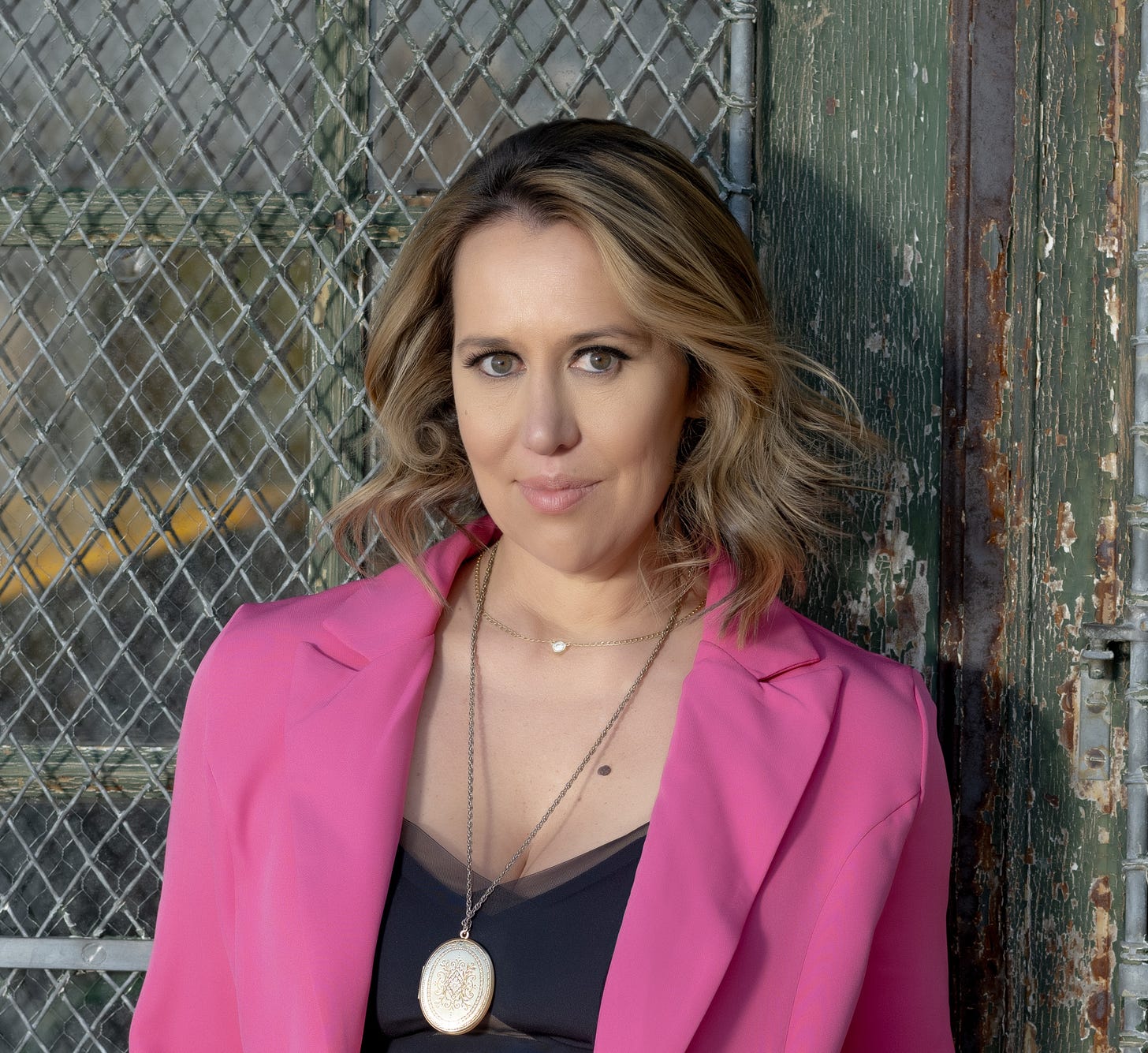
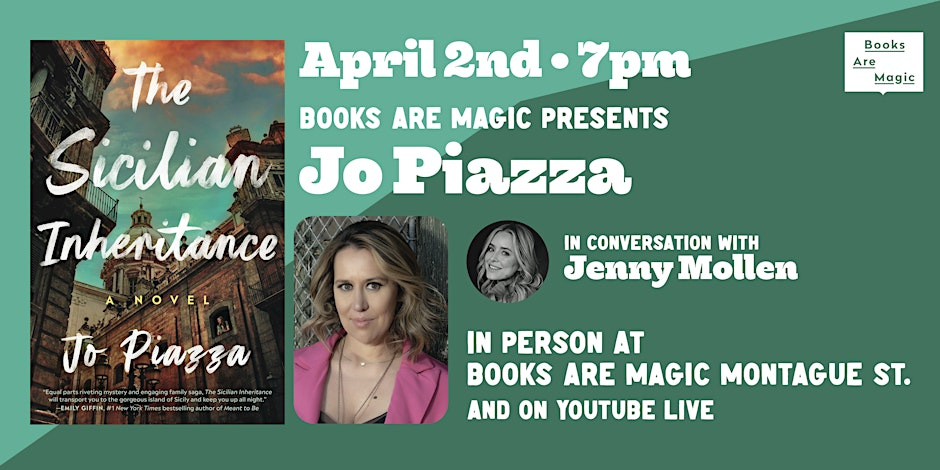
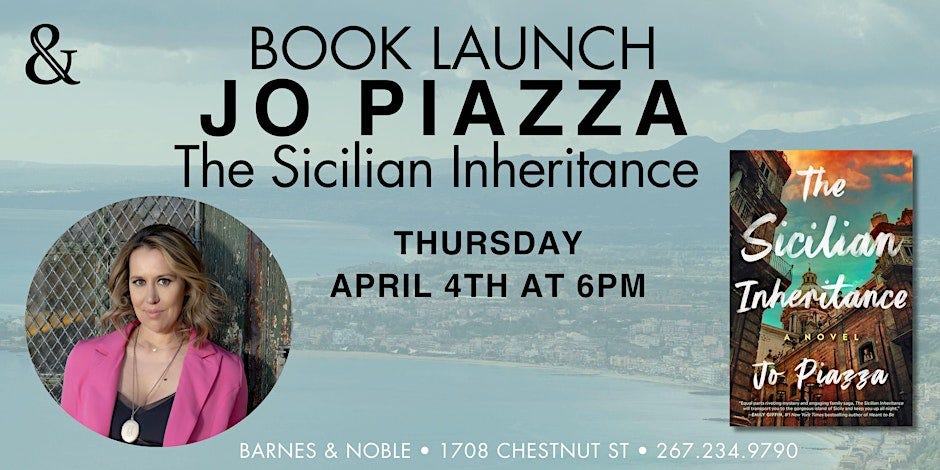
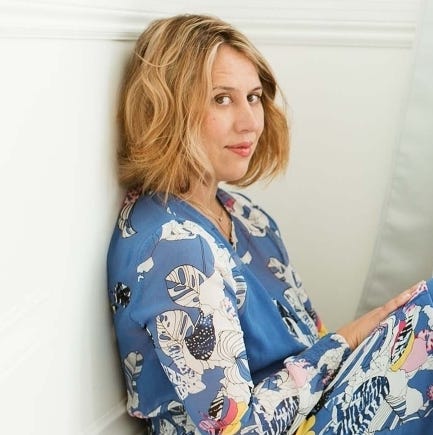





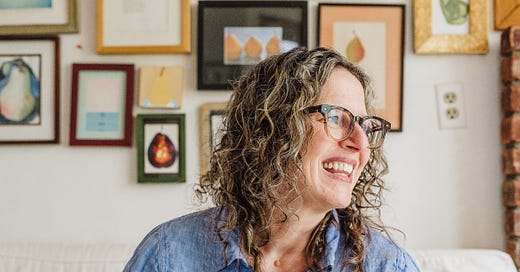





I became a lot better at slowing down and being present after having kids. Mostly as a survival technique—a toddler-paced walk can feel excruciating if you can’t learn to slow down and take in your surroundings. That doesn’t mean I’m always that way, I hide in my phone or have hamster wheel thoughts too, but at least when I’m outside or have access to a window, I can tap into a few moments of calm and ease. This helps revive me for creative practice and gives space for creative thoughts to bloom.
That's a great question made me look at my writing in a different way. I am a caregiver to my adult daughter who had a stroke after brain surgery. She pretty much needs 24/7 care, but in unpredictable ways. She is impulsive, but charming. Loves people and theatre, but can no longer be in large spaces with lots going on (sensory overload that triggers aggression). I think my caregiving role & having to be hypervigilant to sensory issues (light, sound, visual busyness) has made me more observant around the sensory elements, and that comes out in my writing...how I play with finding the right descriptions and words and tend towards lyricism, which is better able to capture all the elements that might go into, for example, a breeze or a drop of rain.
Thanks for that!
Nancy Huggett, Canada